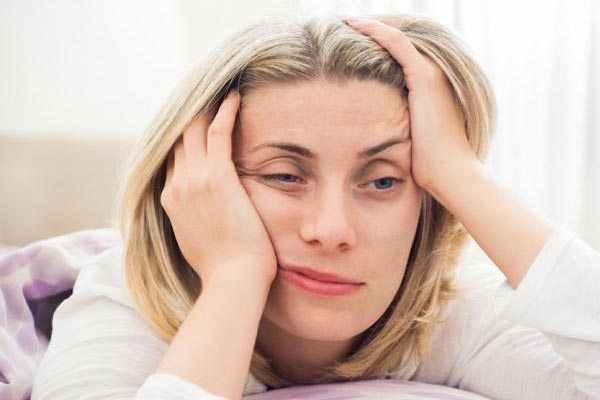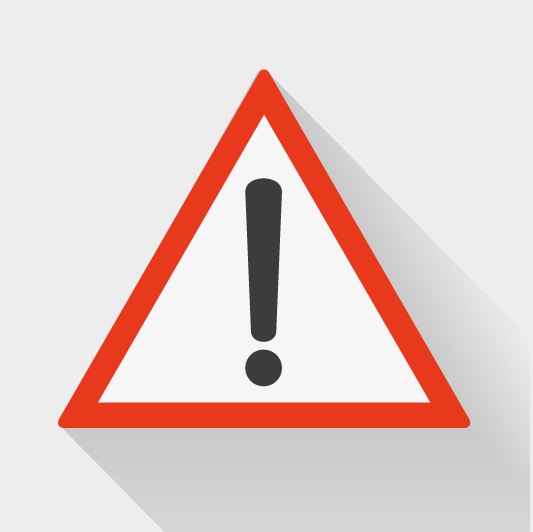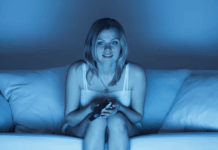
By Alisa Thompson,
It has been stated that 1 in 3 adults in the USA is not getting enough sleep, and this is a problem. Sleep deprivation can cause a whole range of negative things, from accidents at work to health conditions that can permanently affect you. As a result, it is important that you get enough sleep, and that you learn how to improve your nighttime schedule if your pattern is way off base. We know it isn’t an easy thing to try and overcome, but with this handy guide, we are here to help you out.
We know that we can answer all of your questions, concerns, and more, so keep on reading and see if you (or someone you know) could be suffering from this common ailment.
Chapter 1
Fast Facts on Sleep Deprivation
Before we really get started and look at the world of sleep deprivation, it’s good to take a moment to speed through some fast facts about sleep deprivation so that you can get to know the topic a little better. In fact, you will probably find a few of these quite shocking.
#1 Sleep loss alters the way your brain functions, disrupting the ability to focus on environmental sensory inputs.
#2 Lack of sleep has been implicated as one of the most significant roles in tragic accidents that involve airplanes, ships, trains, cars, and nuclear power plants.
#3 Children and young adults are the most vulnerable when it comes to the negative effects of sleep deprivation.
#4 Sleep deprivation can also be a symptom of an undiagnosed sleep disorder or other medical condition.
#5 When you do not get the amount of sleep you require, you begin to accumulate what is known as sleep debt.
#6 The record for the longest period of time someone went without sleep is 18 days, 21 hours, and 40 minutes. During this time, the record holder experienced hallucinations, paranoia, blurred vision, slurred speech, and lapses in memory and concentration.
#7 Any time less than five minutes to fall asleep at night means that you are sleep deprived. The ideal amount of time it should take to fall asleep is 10-15 minutes.
#8 17 hours of sustained wakefulness will lead to a decrease in performance that is equivalent to having a blood alcohol level of 0.05%.
#9 In order to fall asleep we must be cool enough, as the sleep-wake cycle in the brain is very closely linked to temperature. This is why summer nights can cause a restless sleep. The comfort zone shrinks as we get older, hence the elderly have more sleep disorders.
#10 The extra hour of sleep received when the clocks fall back in Canada coincides with a decrease in the number of road accidents.
#11 Teenagers need the same amount of sleep as small children, and those over 65 need the least amount of anyone. The average adult requires a middle amount.
#12 Some studies claim that women need an hour more sleep than men each night, and not getting it could be why they are more susceptible to depression than men are.
#13 It is estimated that fatigue is the cause of 1 in 6 fatal road accidents.
#14 Sleep deprivation causes people to be less able to cope with stress because it impairs our emotional resilience.
#15 It can boost the brain chemicals that are linked to appetite, giving us a case of the munchies late at night. This can, in turn, be linked to rising levels of obesity.
#16 You become less expressive, and react less to humorous stimuli, essentially losing your sense of humor until you are able to catch up with your sleep debt.
#17 Driving drunk and driving while tired are equally dangerous.
#18 You may feel or claim that you are used to less sleep than you need, but in reality your body is never truly able to get used to it.
#19 It can damage your skin, causing bags and wrinkles that worsen over time. In addition to this, it can weaken your immune system so you become sick more frequently.
#20 A lack of sleep can increase feelings of depression and anxiety.
Chapter 2
Sleep Deprivation in Teens and College Students
For many years, it has been argued that adolescents have different sleeping patterns from adults and children, but it has often been marked as laziness amongst teenagers by adults. However, numerous research has shown that teenagers do actually have a biological tendency to go to sleep as much as two hours later than adults, and that their sleep cycles differ as a result, and the push to fall asleep is a much slower one.
With things like evening activities and weekend events, the brain doesn’t think that it is nighttime until later, and so melatonin secretion is turned off later in the morning, making it harder for them to get up. Due to the way we want teenagers to function each day, their sleep cycle is disrupted, and they lose a lot of the deepest and most effective rest period.
It doesn’t help that teenagers and college students are expected to have so many commitments, which causes them a lot of pressure. Educational institutions are one of the biggest contributors to sleep deprivation because of the tight schedule they give their students. They are expected to complete assignments, get on with extra-curricular activities, and have to be accountable for all of this while also remaining competitive.
As a result, many students end up staying up too late completing assignments and don’t get the sleep required for proper function the next day. This leads to a vicious cycle, with increased deprivation that can lead to poor performance at school or college. As many as 50% of college students report daytime sleepiness, and 70% attain insufficient levels of sleep to function correctly.
If they do not get enough sleep, teenagers and college students are likely to find that their grades (and GPA) end up suffering, that their brains do not develop as well as they could, that their coordination is poor, and that they suffer from poor moods and even bouts of depression and rage. Getting enough sleep, on the other hand, can change all of this as well as boost memory, lower the risk of obesity, and even boost the immune system.
Teenagers should be getting a minimum of eight hours of sleep every night, but the preferred amount of time is ten. For college students, should get between seven and nine hours of sleep each night in order to function as well as possible in class and when completing assignments. Ideally, schools should change the times that classes start in order to help teenagers and college students perform better in class, as waking up later means waking up prepared for the day ahead.
Of course, there is also the case of poor sleep hygiene that can result in teenagers having sleep deprivation. The concept of good sleep hygiene includes avoiding caffeine before sleep, a quiet environment, and sticking carefully to a specific sleep schedule. Poor sleep hygiene practices that many teenagers carry out are as follows:
- Drinking alcohol before sleep. This is because while it can help you to sleep faster, it disrupts the REM stage of sleep, which can cause a restless night and poor sleep quality overall.
- Using technology before bed. The blue screen actually stops the production of melatonin, the hormone that controls your sleep cycle and circadian rhythm. This can lead to weight gain as well as insomnia.
- Having too much during the day, or some before bed, can actually impact your sleep. Even consuming it six hours before bedtime can significantly reduce sleep quality, causing more instances of waking up in the night as well as general restlessness.
If anything, these examples show why it is so important for adolescents to get good sleep, and why they need to get enough. Of course, naps are a great way to boost your energy and combat sleep deprivation (as long as you do not have too many), but cognitive behavioral therapy can also be a great way to combat the issue.
Chapter 3
Symptoms of Sleep Deprivation
There are a number of different symptoms that are associated with sleep deprivation, although the main (and ongoing) one is excessive sleepiness during the day. Here are some of the other main symptoms that you could be suffering from sleep loss:
- Yawning frequently
- Moodiness and irritability
- Depression
- Fatigue
- Forgetfulness
- Lapse in concentration
- Difficulty with cognitive function
- Impaired motor skills
- Changes in appetite
- Blurred vision
- Disorientation
- Paranoia and hallucinations
- Headaches
- Lack of motivation
- Reduced sex drive
- Pain in the body
- Falling asleep unintentionally
- Sleeping through alarms
Conditions sleep deprivation can increase the risk of:
- High blood pressure
- Heart attack
- Obesity
- Diabetes

Man yawning
If you think you have some or all of the symptoms of sleep deprivation, it is time to get your schedule back on track so that you can start leading a healthier and more rested life. Of course, if you are really struggling or just want some advice, speaking to your physician is always an excellent idea.
Chapter 4
Effects of Sleep Deprivation
Sleep deprivation can have a very negative effect on the mind and body, including the way in which it functions and processes information. It can prevent the body from boosting and building the immune system, and even stop it from producing more cytokines to fight infection. What this means is that it can take longer to recover from an illness or infection, but can also increase your risk of contracting a chronic illness.
It can also result in an increased risk of new and advanced respiratory diseases, which could prove problematic when combined with a lowered immune system. Sleep helps the heart vessels to heal and repair themselves, as well as ensuring that blood pressure and sugar levels are maintained, and that inflammation is controlled. By not sleeping enough, these processes are slowed, and the risk of cardiovascular disease is increased.
Body weight can also be affected by a lack of sleep, as the two hormones that control the feeling of hunger and fullness (leptin and ghrelin) are negatively impacted by sleep loss. It can also cause the release of insulin into the body, increasing fat and sugar storage for a higher risk of contracting type 2 diabetes.
Insufficient sleep can also affect hormone production, including growth hormones and testosterone in men. While it may suppress growth hormones, it also boosts the number of stress hormones being released, leading to feelings of worry as well as an increased level of panic.
It should also be noted that sleep deprivation has also played a key role in some of the biggest disasters we have seen, as well as accidents that happen every day. Both the 1979 and 1986 nuclear incidents were caused by sleep deprivation, and these are situations that cost lives.
Similarly, a lack of sleep is a massive public safety hazard on the road, and there are accidents every day. This is because drowsiness can cause a slow reaction time that is similar to when you are driving drunk. It is estimated that fatigue when driving is the cause of 100,000 car crashes and 1550 car accident deaths every year in the USA. It is a problem that is greatest amongst those who are under the age of 25.
Studies also show that sleep loss, or poor quality sleep, is related to accidents and injuries that are caused in the workplace. Employees who felt excessive daytime sleepiness had a significantly higher number of work accidents, and many of them were repeated. It should also be noted that they needed more sick days for each accident in order to recover as well as workers that were not sleep deprived.
Chapter 5
Causes of Sleep Deprivation
When sleep deprivation occurs, it is because the person has not been able to get a healthy amount of sleep in order to function properly. Before we get into the specific causes, here is a quick and handy list for the recommended amount of sleep a person needs according to their age:
- Newborns (0 to 3 months): 14 to 17 hours each day
- Infants (4 to 11 months): 12 to 15 hours
- Toddlers (1 to 2 years): 11 to 14 hours
- Preschoolers (3 to 5 years): 10 to 13 hours
- School-age children (6 to 13 years): 9 to 11 hours
- Teenagers (14 to 17 years): 8 to 10 hours
- Adults (18 to 64 years): 7 to 9 hours
- Older adults (over 65 years): 7 to 8 hours
Now, for the causes of sleep deprivation, for which there are many. First, you have the group of people (we all know one) that consider sleep as wasted time, and so they deprive themselves of it on purpose so that they can get on with other tasks like work, entertainment, assignments for school, or just chilling out. It’s not healthy, and intentional sleep deprivation is most commonly seen in teenagers and young adults.
On the other hand, there are those who unintentionally deprive themselves of sleep because they have demanding lives. Much of the time this is due to a job that has unreasonable overtime, family obligations, or shift work – which is a big player in the causes of sleep deprivation.
Consistently going to bed late and getting up late can cause sleep loss, as can frequently waking up in the night. Waking up too early can cause sleep debt that leads to deprivation as it accumulates over time. Additionally, conditions like depression and anxiety can cause a person to be unable to sleep well, or even at all.
Medical conditions, such as obstructive sleep apnea and hormone imbalances can cause sleep loss. There are also chronic conditions like ME/CFS that cause an excess of oversleeping because the body is almost constantly fatigued, often leading to a vicious cycle.
Chapter 6
Treatment of Sleep Deprivation
If a person cannot physically get to sleep, as a result of physical or psychological difficulties, treatment is required. Often, a therapist or sleep specialist will be the one to offer guidance and advice, as well as coping techniques for reaching a restful state of sleep. Generally speaking, there are two main treatment paths that can be taken – behavioral and cognitive measures, and medications.
#1 Behavioral and cognitive treatments
There are a number of excellent and effective methods for enhancing sleep that does not require any medication, and these can be found below:
Relaxation techniques: This is a progressive form of muscle relaxing that involves the tensing and untensing of different muscles in the body to help maintain calm. Additionally, medication, mindfulness, breathing exercises, and guided imagery can provide masses of help in this area. There is also the option to use audio recordings to help people fall asleep at night.
Stimulation control: This involves taking control of your activities before you go to bed, as well as your surroundings, so that you can moderate your sleeping patterns effectively. This means doing things like only spending time in bed when you are sleepy, controlling the association between being in bed and being ready to go to sleep.

Cognitive behavioral therapy (CBT): This is an incredibly helpful type of therapy that has been designed to help people understand and change the thought patterns behind specific behaviors. It works to challenge irrational and unhealthy beliefs, while also promoting calm and positive thoughts. In this way, it can be used to help develop a better and healthier sleeping pattern.
#2 Medications
If a non-medicinal treatment has been ineffective, there are medications available that can induce sleep. There are some that can be purchased over the counter from your pharmacist, and others that can only be picked up with a valid prescription from your doctor. There is a whole load available, and your doctor will help you pick the one that should work best for you.
It should be noted that some people form a dependency on sleeping pills, and so it is important to try and limit the amount that you take and use non-medicinal remedies when and if you can.
#3 Home management
On the plus side, most of the negative effects of sleep deprivation are revered once you get the sufficient amount of sleep. The best treatment is often satisfying your biological need to sleep, preventing deprivation, and paying back the sleep debt that you have accumulated. You can also follow the sleep hygiene rules, which is something we look at in detail a little later on.
#4 Paying off the sleep debt
When you do not get the amount of sleep that you require, you will begin to accumulate sleep debt. So, if you need to sleep for eight hours and you only sleep for five, you have accumulated three hours of sleep debt. Every night that you continue to follow the pattern adds more sleep debt.
The only way you can erase your debt is to get more sleep, and it can take some time to fully recover depending on the amount you have accumulated. However, you will be able to feel the positive effects of paying the debt off very quickly.
In order to pay back your sleep debt, you need to start getting the sleep you need with the addition of an extra hour or so each night until the debt is paid. Once it is done, you can subtract the extra hour from your sleep schedule. As long as you are making a conscious effort to recover, it does not matter how many hours you have lost to sleep deprivation, and you will begin to feel better quickly.
However, if your sleep deprivation is ongoing and the negative symptoms persist even though you are practicing good sleep hygiene, you should speak to your doctor as soon as possible to check for underlying health conditions.
Chapter 7
Precautions Regarding Sleep Deprivation Treatments
If you are using sleep aids, as prescribed by your doctor, it is important that you know how to use them safely so that you can take any necessary precautions when treating your sleep deprivation.
You must first consult with your doctor about which sleep deprivation medications to use, the correct dosage, and the best treatment plan for you. At this point, a number of factors will be taken into account, including:
- Your age
- Other health factors
- The underlying cause of your insomnia (if applicable)
This information is an essential part of learning how to use your sleep medication properly and responsibly.
You should also make sure that you do not grow to rely on sleep aids forever, and the majority of doctors will agree that they are not supposed to be used permanently. Instead, it is up to you and your doctor to figure out long you should take the sleep aid for, and other potential treatments (like CBT) that might be able to help you get back into a good sleeping routine.
While there are some over the counter sleep aids that might help you in the short-term, it is important to remember that they are not supposed to be used for prolonged periods of time, or to fix insomnia.

You should also make sure you follow the safety guidelines on all medication you receive, and that you read the packaging carefully so that you understand potential risks and side-effects. You can also talk to your doctor about any precautions you need to take, especially if they are related to your personal health.
Chapter 8
Diagnosis
As we have already discussed, sleep specialists state that the most telltale sign that you are sleep deprived is feeling drowsy during the day. You see, even if a task is very uninteresting, you should be able to stay alert if you are not sleep deprived. Additionally, if you fall asleep within five minutes of lying down, you are likely to have very severe sleep deprivation.
Those who have sleep deprivation also tend to suffer from microsleeps, which are a brief period of sleep that is experienced during waking time. On most occasions, a person is not even aware that they have experienced microsleeps and will simply view it as a few lost seconds. For example, if you are driving when fatigued, you may not remember driving from one street to the other, and this is an example of experiencing a microsleep.
There are some occasions where it could be a more serious, and possible life threatening, sleep disorder like sleep apnea. If this is suspected, a sleep specialist may decide to conduct a polysomnography, also known as a sleep study, to monitor your breathing, heart rate, and other vital signs over the course of the night. It will also provide the specialist with an excellent amount of information to help diagnose and treat your underlying condition.

For the diagnosis process to begin, your doctor will perform a physical exam, including asking you for symptoms so that they can match them up with the ones we have already discussed. We’ve already mentioned much of the diagnosis process, and here are some of the tests your doctor might order:
Polysomnography: a sleep study that evaluates oxygen levels, body movements, and brain waves to determine how they disrupt sleep.
Electroencephalogram: a test that assesses electrical activity in the brain and detects any potential problems associated with this activity.
Genetic blood testing: a blood test commonly used to diagnose narcolepsy and other underlying health conditions that might be causing sleeping problems.
Chapter 9
Complications
There are a number of complications and concerns that come with sleep deprivation. For one, it weakens your ability to handle reasoning, as that area of the brain is affected by lack of sleep. This part of the brain is known as the prefrontal cortex, and it is used to control the emotional section (the amygdala). As a result, sleep deprivation leads to emotions being processed in an abnormal manner.
It is also necessary to get enough sleep in order for the brain to learn. A lack of sleep causes difficulty in concentration as well as the ability to create new memories. If we stay awake all night or cut our sleep short by a significant amount, the body will not release the necessary hormones to regulate growth and appetite. Instead, it ends up with a cornucopia of stress chemicals, like cortisol.
In fact, research suggests that a shorter sleep duration can actually cause weight gain in both adults and children, with each hour of reduction in sleep time per day being associated with an increase of 0.35kg in body weight. These changes can then result in an increased risk of hypertension, diabetes, obesity, heart attacks, and even strokes.
A lack of sleep can also have a massive impact on a healthy person’s ability to function emotionally and think normally, which can result in the following:
- A reduced tendency to think positively
- Poor moods and a decreased willingness to solve issues
- Greater tendency towards superstition and magical belief
- Decreased empathy and an increased intolerance for others
- Poor impulse control
- Inability to delay gratification
Those who are experiencing a loss of sleep are more likely to have increased feelings of worthlessness and inadequacy. They are also more prone to feel powerless, like a failure, have low self-esteem, poor job performance, conflicts with co-workers, and an overall reduced quality of life. Many of these feelings remain even when stimulants are introduced to boost energy, like caffeine. Those who are sleep deprived are also more likely to score highly on scales for depression, anxiety, and paranoia.
There is also the risk of microsleeps when a person has become really fatigued. After around 16 hours of staying awake, the body will attempt to balance the need for sleep, and if a person does not get enough of it, the brain will find other ways to get the sleep it needs.
Microsleeps are an uncontrollable response that your brain has when you are deprived of sleep, and it renders a person completely unable to process any stimulation around you as well as sensory information for an incredibly brief amount of time.
Your eyes will tend to remain open during a microsleep, but you will be spaced out during it. The attacks come on suddenly, making it potentially dangerous to drive or operate heavy machinery during them. A microsleep will happen regardless of whether or not you try to stay away, and it is because of this that it is almost impossible to stay away for more than 48 hours.
Chapter 10
Habits to Avoid
If you are sleep deprived, or trying to avoid becoming that way, there are a few bad habits that you really need to avoid, and they are as stated below:
#1 Taking a Nap
There are times where napping can help to give you the boost you need, especially in college or before an essential meeting, but if you don’t need to nap then consider skipping it. This is because it can lower your sleep drive, causing you to go to bed later that night and wake up feeling slow and groggy the next day. If you really do need to nap though, make sure it is between 1pm and 3pm for no more than 25 minutes, as this is the optimal time to ensure that your sleep at night is not disrupted.
#2 Going to Bed Early
It can be really tempting to do this, especially when you are feeling absolutely exhausted. However, doing so can mess up your circadian rhythm over time, and this results in what is known as being both wired and tired – where your brain is not ready to go to sleep so early, but your body is. This makes it difficult to fall asleep and can lead to stress and frustration.
#3 Sleeping In
It can seem tempting, especially on a Sunday morning after a long night in or out. However, just one morning of sleeping in by 30 minutes can completely change your internal clock, prompting your body to wake up later than usual. So, if you spend the weekends sleeping in, there is a reason it is so hard to get up on a Monday morning. Try to get up at the same time every day, even on the weekends, to make your week and easier one.
#4 Caffeine Boosts
You’ll probably remember this from being in college, those late nights spend sucking down caffeine until the early hours of the morning so you could finish that essential paper. However, it is a terrible habit to have if you are facing sleep deprivation. The average time it takes caffeine to leave your body is around 8-10 hours, so it is best not to drink any caffeinated beverages after around 2pm. However, this does also depend on your personal tolerance for the stimulant as everyone is different.
#5 Booze Before Snooze
Yes, it has been dubbed a sedative as well as a great way to fall asleep, and this is true. However, it is also the best way to get an unfulfilled and restless night of sleep too. Alcohol reduces rapid eye movement (REM), which is the most restorative part of sleep and helps us turn short-term memories into long-term ones. As a result, alcohol before bed can affect your memory and cause a restless sleep. Plus, it could even wake you up once the alcohol has been fully metabolized.
#6 Scrolling Through Facebook
Social media before bed is the bane of sleep everywhere, and it can have really negative impacts on the quality. Of course, flicking through Facebook or Twitter could send you down a social media rabbit hole because your sleepy self is fresh out of self-control, but the blue screen is the main culprit. It actually mimics daylight, boosting your brain and making it difficult to fall asleep. The more you engage with the social media in questions, the more amped up your brain becomes, making you more awake and alert, which will ensure falling asleep is much harder. So, say no to that last-minute scroll through Instagram before you go to sleep.

You have to stop using social medias just before your sleep.
#7 Snacking Before Bed
Food choices and sleep deprivation are never a good mix, and having a midnight snack before bed can leave you feeling really heavy and bloated, so you won’t be able to sleep for a few hours. We were not made to digest food lying down, and hard to digest food can cause restless sleep or an inability to do so, as well as a slower metabolism and weight gain.
It’s best to eat no more than three hours before bed so that your body can start digesting it, but going to bed hungry can keep you awake too. If you need that snack before sleep, try having something light like Greek yoghurt and bananas. This is a perfect combination of 80% carbs and 20% protein, which is shown to have a calming effect on the body. Cheese and crackers is an option too, but the nightmare superstition is very real for some.
Chapter 11
Prevention
Really, the best way to prevent sleep deprivation is to practice good sleep hygiene, something we have talked about a few times before. Here are the basic steps you can take in order to attain a good standard of sleep hygiene and end up with a good rest:
- Go to sleep and wake up at the same time every day
- Shut off devices and do soothing things an hour before bed
- Make sure your bedroom is dark and cool
- Avoid caffeine at least five hours before bed, same with alcohol
- Don’t eat for at least three hours before bed
- Try to get at least 30 minutes of exercise a day to boost mental and physical tiredness
It’s actually very quick and simple, making it easy for anyone to follow. Of course, it can be hard to get into the swing of things, so take some time to really work on a routine and getting your sleep hygiene just right.
The issue is, sleep deprivation is often linked to serious accidents, as well as poor job and school performance – lowering a person’s quality of life substantially. It disrupts the brain’s ability to balance emotions and the ability to think, lowering your natural defenses, and increasing your chances of developing chronic medical conditions.
Of course, the occasional poor night of sleep won’t cause you much harm, but it will if it becomes a persistent problem. After all, there is no substitute for restorative sleep, and so care should be taking to prevent ongoing sleep deprivation regardless of age.
To Conclude
Hopefully, this has helped you to better understand the world of sleep deprivation, how it is caused, and the ways in which it can be treated. It is amazing how negatively you can be impacted by a lack of sleep, and the number of health conditions that can be caused by consistently missing out should be enough to make sure you get started on paying back your sleep debt. After all, it is your health and wellbeing on the line.
What did you think of our sleep deprivation guide? Did it contain all the information you needed, or are there things that you felt we missed out? We love hearing from you, so let us know in the comments below.
Sources:-
Source: https://yoohealth.com
Disclaimer: We at Prepare for Change (PFC) bring you information that is not offered by the mainstream news, and therefore may seem controversial. The opinions, views, statements, and/or information we present are not necessarily promoted, endorsed, espoused, or agreed to by Prepare for Change, its leadership Council, members, those who work with PFC, or those who read its content. However, they are hopefully provocative. Please use discernment! Use logical thinking, your own intuition and your own connection with Source, Spirit and Natural Laws to help you determine what is true and what is not. By sharing information and seeding dialogue, it is our goal to raise consciousness and awareness of higher truths to free us from enslavement of the matrix in this material realm.
 EN
EN FR
FR


























1. Sleep meds are dangerous, toxic, addictive and don’t promote quality sleep. Never take sleep meds!
2. Napping is not a “bad habit”. Napping is good.
3. There’s an effective energy medicine technique that helps promote sleep: rubbing the back of a stainless steel spoon on the soles of your feet. https://www.youtube.com/watch?v=_q1dRiglSMU